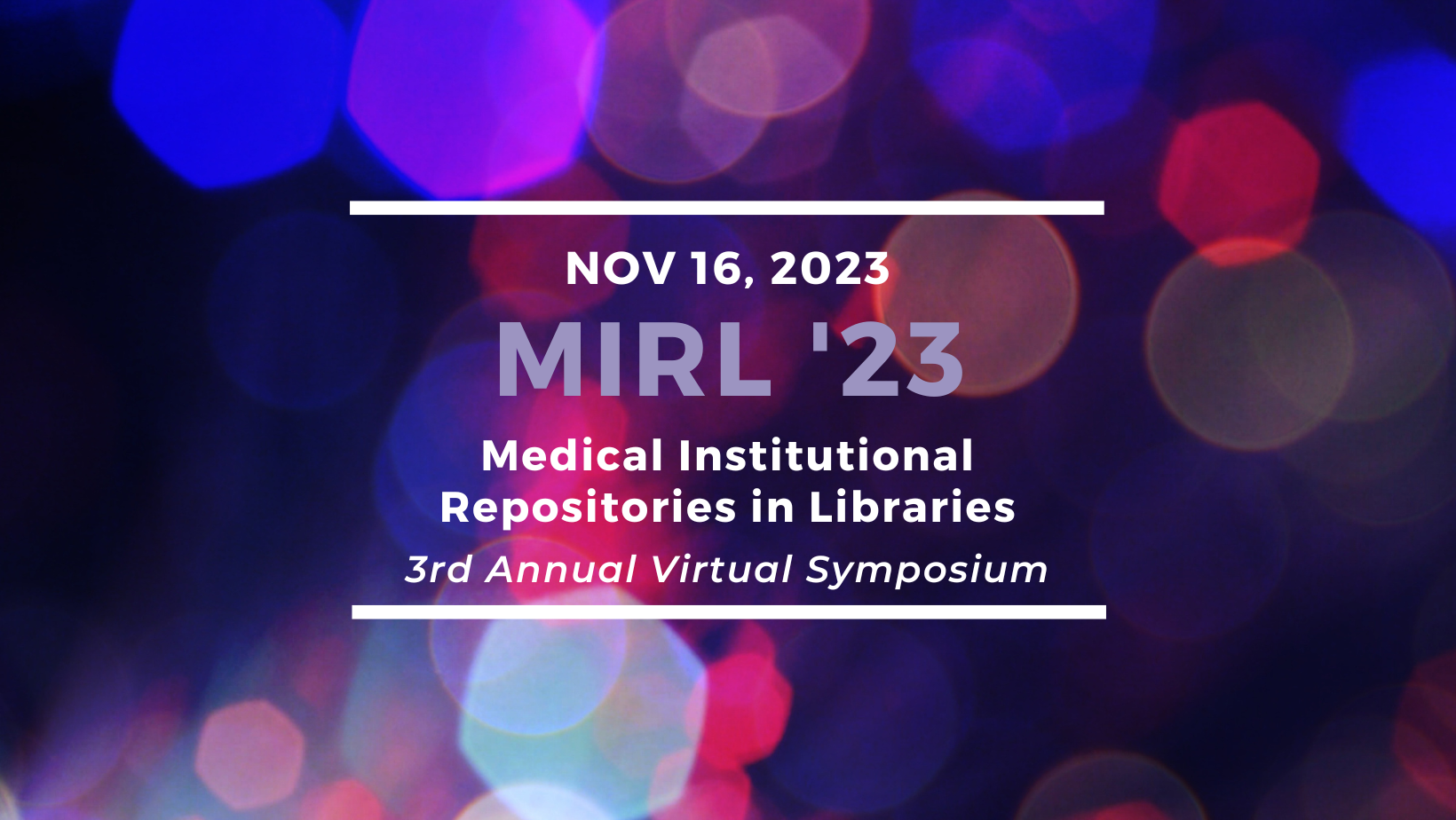Loading...
Presentation Type
Presentation
Date
2023-11-17
Description
Open Research Infrastructure refers to technical components that can be used within or alongside software systems to enable assessment, openness, and FAIRness in the research and scholarly communication ecosystem (FAIR = Findability, Accessibility, Interoperability, and Reusability). When research outputs (and metadata about research outputs) are FAIR, organizations can begin to gather information needed to assess the reach and impact of research activities at the organization. This session will explore three open research infrastructure programs relevant to Medical Library IRs and how they can help to lay a foundation for gauging research activity and impact: ORCID (Open Researcher & Contributor Identifier), DataCite DOIs (Digital Object Identifiers), and IRUS (Institutional Repository Usage Statistics). For organizations located in the United States, Lyrasis manages a consortial program for each of these infrastructures: we support ORCID to identify researchers & gather/analyze/visualize researcher affiliations & activities; we support DataCite DOIs to make works findable, accessible, reusable, and trackable; and we support IRUS to gather repository platform & item interaction stats for assessment & benchmarking. All of these infrastructures also interoperate with each other to form a foundation on which libraries can gather information needed to gauge activity and assess reach and impact at and across organizations.
Keywords
Open Research Infrastructure; Institutional Repositories
Open Access
1
Rights and Permissions
Copyright © 2022 The Authors.
Repository Citation
Rabun, Sheila, "Open Research Infrastructure Programs for Medical IRs" (2023). Medical Institutional Repositories in Libraries (MIRL). 17.
https://hsrc.himmelfarb.gwu.edu/mirl/2023/program/17
Open Research Infrastructure Programs for Medical IRs
Open Research Infrastructure refers to technical components that can be used within or alongside software systems to enable assessment, openness, and FAIRness in the research and scholarly communication ecosystem (FAIR = Findability, Accessibility, Interoperability, and Reusability). When research outputs (and metadata about research outputs) are FAIR, organizations can begin to gather information needed to assess the reach and impact of research activities at the organization. This session will explore three open research infrastructure programs relevant to Medical Library IRs and how they can help to lay a foundation for gauging research activity and impact: ORCID (Open Researcher & Contributor Identifier), DataCite DOIs (Digital Object Identifiers), and IRUS (Institutional Repository Usage Statistics). For organizations located in the United States, Lyrasis manages a consortial program for each of these infrastructures: we support ORCID to identify researchers & gather/analyze/visualize researcher affiliations & activities; we support DataCite DOIs to make works findable, accessible, reusable, and trackable; and we support IRUS to gather repository platform & item interaction stats for assessment & benchmarking. All of these infrastructures also interoperate with each other to form a foundation on which libraries can gather information needed to gauge activity and assess reach and impact at and across organizations.


